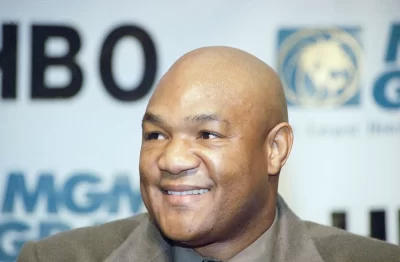
HOSCHTON, Ga. — May’s election for the Georgia Supreme Court is playing out as races for the state’s highest court have for decades: sitting justices running uncontested.
But there is an exception, and it’s driven by the issue that has roiled politics across the country for the past two years: abortion.
Justice Andrew Pinson is the only one of four incumbents seeking election to draw a challenge, and it’s a formidable one. Former U.S. Rep. John Barrow, a Democrat, hopes to harness a voter backlash to abortion restrictions to unseat Pinson in what could be a model for future Georgia court contests in a state that has become a partisan battleground.
The May 21 general election for a six-year term is nonpartisan, and a Barrow victory wouldn’t change the conservative leanings of the court. Eight of the nine justices, including Pinson, were appointed by Republican governors. The other won his seat unopposed after being appointed to a state appellate court by a Democratic governor.
Barrow’s bid is seen as a longshot. Pinson, appointed two years ago by Republican Gov. Brian Kemp, appears to be raising more campaign money as the state’s legal establishment closes ranks around him.
But Barrow hopes a voter backlash against Georgia’s near-total abortion ban is the path to an upset.
In talks primarily to Democratic groups, Barrow says that when Pinson was Georgia’s solicitor general, he was the lawyer most responsible for the state supporting the Mississippi case that led to the U.S. Supreme Court overturning a constitutional right to abortion in 2022.
That decision cleared the way for a 2019 Georgia law to take effect banning most abortions after fetal cardiac activity can be detected, usually in about the sixth week of pregnancy. That’s before many women know they are pregnant.
At an April 15 Democratic meeting in a retirement community northeast of Atlanta, Barrow attacked Pinson’s former membership in the Federalist Society and his term as a clerk for Supreme Court Justice Clarence Thomas, drawing boos from the 50 attendees.
Barrow said he believes Georgians have a state constitutional right to abortion and that voters would boost their chances of restoring broader access to abortion by doing something they’ve never done before: defeating an incumbent state justice.
“I happen to believe that the Georgia Constitution does provide a right of privacy, and that encompasses everything that we associate with what was the law under Roe vs. Wade. And then it’s probably wider,” Barrow said. “That would mean the current statute, the current ban we’re living with right now, violates that provision of the Constitution.”
Opponents of the six-week ban are challenging it in state court, arguing Georgia’s unusually well-developed law protecting privacy should void it. That case is almost certainly headed back to the Georgia Supreme Court
Pinson said it would be inappropriate to discuss his views on abortion or other topics that might come before the court.
“If judges start talking about issues in cases that come before the court, or that could come before the court and opine, ‘Personally, I think this; personally I think that,’ man, it just starts chipping away at people’s confidence in our judiciary,” Pinson said in an interview.
State supreme court races have become more expensive in recent years as courts have weighed issues like political gerrymandering. The U.S. Supreme Court decision overturning the right to abortion has put those races under even greater scrutiny in the past two years as the divisive issue has returned to the states.







